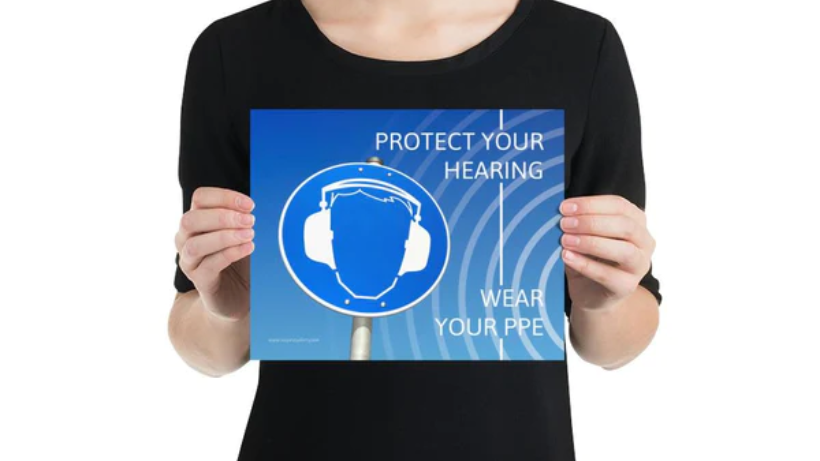
How to Protect Your Hearing: Tips from Leading ENT Specialists
02 Sep, 2023
Introduction:
Hearing is an essential aspect of our lives, enabling us to communicate, experience music, and remain aware of our surroundings. Yet, the modern world is filled with potential hazards that can damage our hearing over time. In this article, we'll explore tips and insights from leading Ear, Nose, and Throat (ENT) specialists on how to effectively protect your hearing. By understanding the risks and implementing preventative measures, you can enjoy a lifetime of healthy hearing.
A. Understand the Risks
1. Loud Noises and Hearing Loss
Transform Your Beauty, Boost Your Confidence
Find the right cosmetic procedure for your needs.

We specialize in a wide range of cosmetic procedures

Before diving into protective strategies, it's important to recognize the various risks that can lead to hearing loss. Exposure to loud noises, either sudden or prolonged, is a significant contributor. This includes concerts, fireworks, power tools, and even prolonged use of headphones at high volumes.
2. Aging, Genetics, and Medical Factors
Additionally, aging, genetics, certain medications, and medical conditions can impact your hearing health. Awareness of these risks is the first step towards safeguarding your auditory well-being.
B. Use Hearing Protection
One of the simplest ways to prevent noise-induced hearing loss is to wear hearing protection when exposed to loud environments. Foam earplugs, earmuffs, and custom-moulded earplugs are all effective options. Whether you're at a concert, a construction site, or a noisy sporting event, wearing appropriate hearing protection can significantly reduce the risk of damage.
C. Practice Volume Control
Personal audio devices have become ubiquitous in modern society, but using them at high volumes can lead to long-term hearing issues. The "60/60 rule" is a good guideline: listen at no more than 60% of the maximum volume for no more than 60 minutes at a time. Taking breaks between listening sessions can also help give your ears a chance to recover.
D. Maintain Ear Hygiene
1. Proper Ear Hygiene
Proper ear hygiene is often overlooked but is crucial for maintaining healthy hearing. Inserting objects like cotton swabs into the ear canal can push wax deeper and potentially damage the delicate structures of the ear. Instead, allow the ears to naturally expel wax, or use a soft cloth to clean the outer ear.
2. Dealing with Excessive Earwax
If you're experiencing excessive earwax buildup, consult a healthcare professional.
E. Be Mindful of Medications
1. Ototoxic Drugs and Their Effects
Certain medications, known as ototoxic drugs, can harm the auditory system. If you're prescribed medications that fall into this category, discuss potential side effects with your doctor and inquire about alternative options.
2.Consulting with Healthcare Professionals
Regular communication with your healthcare provider can help protect your hearing while managing other health concerns.
F. Embrace Quiet Time
In a world filled with constant noise, giving your ears regular breaks is essential. Engage in activities that allow you to enjoy quiet moments. Meditation, reading, or simply spending time in nature can be beneficial for your hearing health as well as overall well-being.
G. Monitor Your Hearing
1. The Importance of Regular Hearing Check-ups
Regular hearing check-ups are essential, especially if you are exposed to high noise levels or are noticing changes in your hearing. A baseline hearing assessment can help track any changes over time, allowing for early intervention if necessary.
2. Hearing Assessment Recommendations
ENT specialists recommend adults have their hearing tested at least once every decade until age 50, and every three years after that.
H. Create a Hearing-Friendly Environment
1. Managing Noise Levels
If you're in control of your environment, take steps to make it hearing-friendly. For instance, keep television and music volumes at reasonable levels, implement noise-dampening measures in your home or workspace, and encourage others to do the same.
2. Promoting Quiet Spaces
By creating a quieter environment, you reduce the risk of long-term hearing damage.
I. Educate Children and Teens
1. Early Hearing Education
Hearing protection and awareness should start early. Educate children and teenagers about the risks of loud noises and the importance of protecting their hearing.
2. Responsible Volume Control
Encourage the use of headphones with volume-limiting features and explain the concept of responsible volume control.
Read also- Rhinoplasty Treatment in India
J. Advocate for Hearing Safety
1. Supporting Hearing Health Initiatives
Support policies and initiatives that promote hearing health in your community. Encourage local venues to provide hearing protection options during concerts and events.
2. Raising Awareness in the Community
By advocating for hearing safety, you contribute to raising awareness and creating a more hearing-conscious society.
Conclusion:
Protecting Your Hearing for a Lifetime
Protecting your hearing is a lifelong endeavor that requires awareness, education, and consistent effort. By understanding the risks, practicing volume control, using hearing protection, and adopting other preventative measures, you can significantly reduce the likelihood of hearing loss. Consulting with ENT specialists, getting regular check-ups, and spreading awareness within your community will contribute to a world where healthy hearing is a priority. Remember, taking steps to protect your hearing today ensures you can continue to enjoy the sounds of life for years to come.
Read more: The Latest Advances in ENT Medicine














